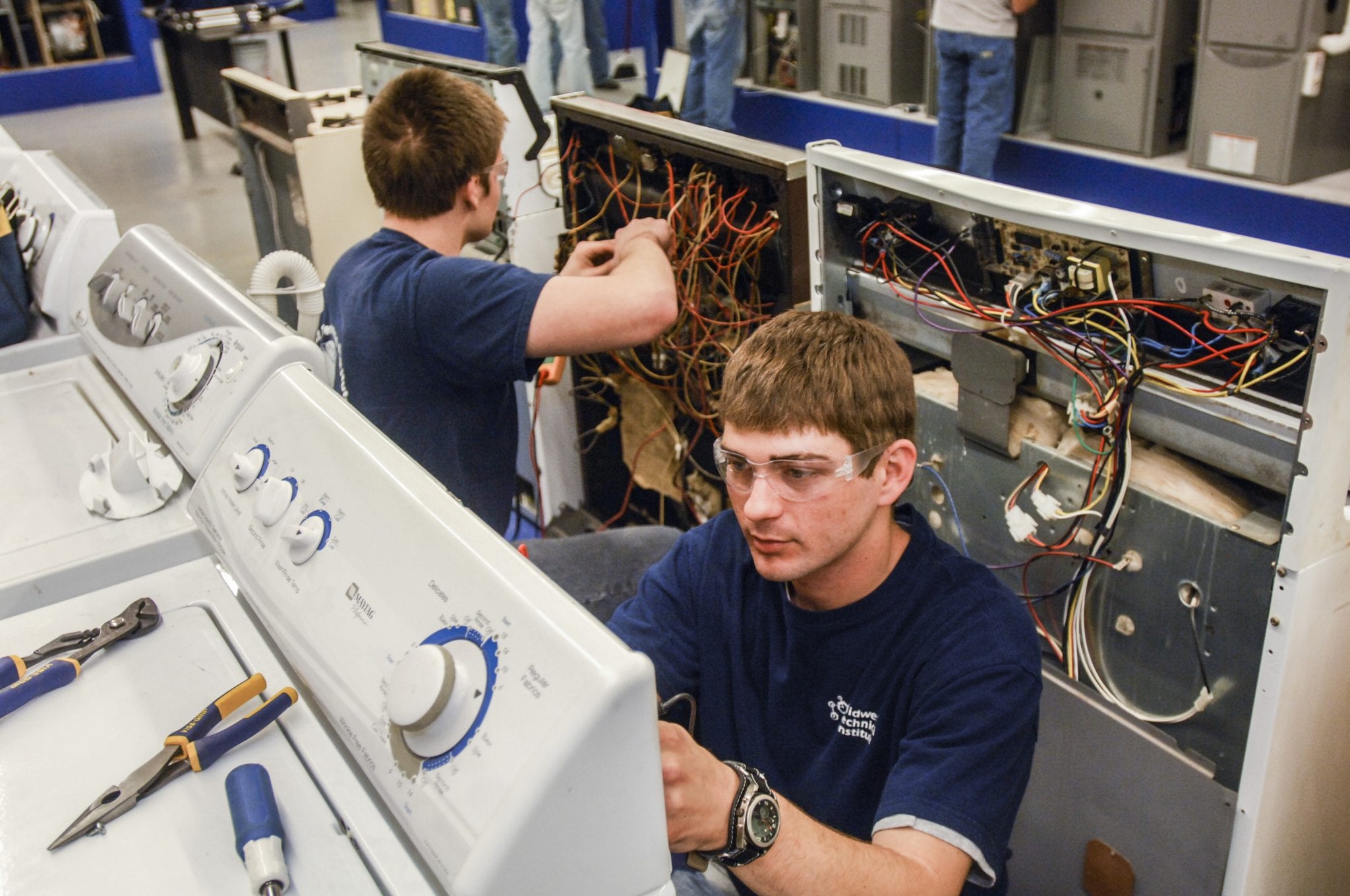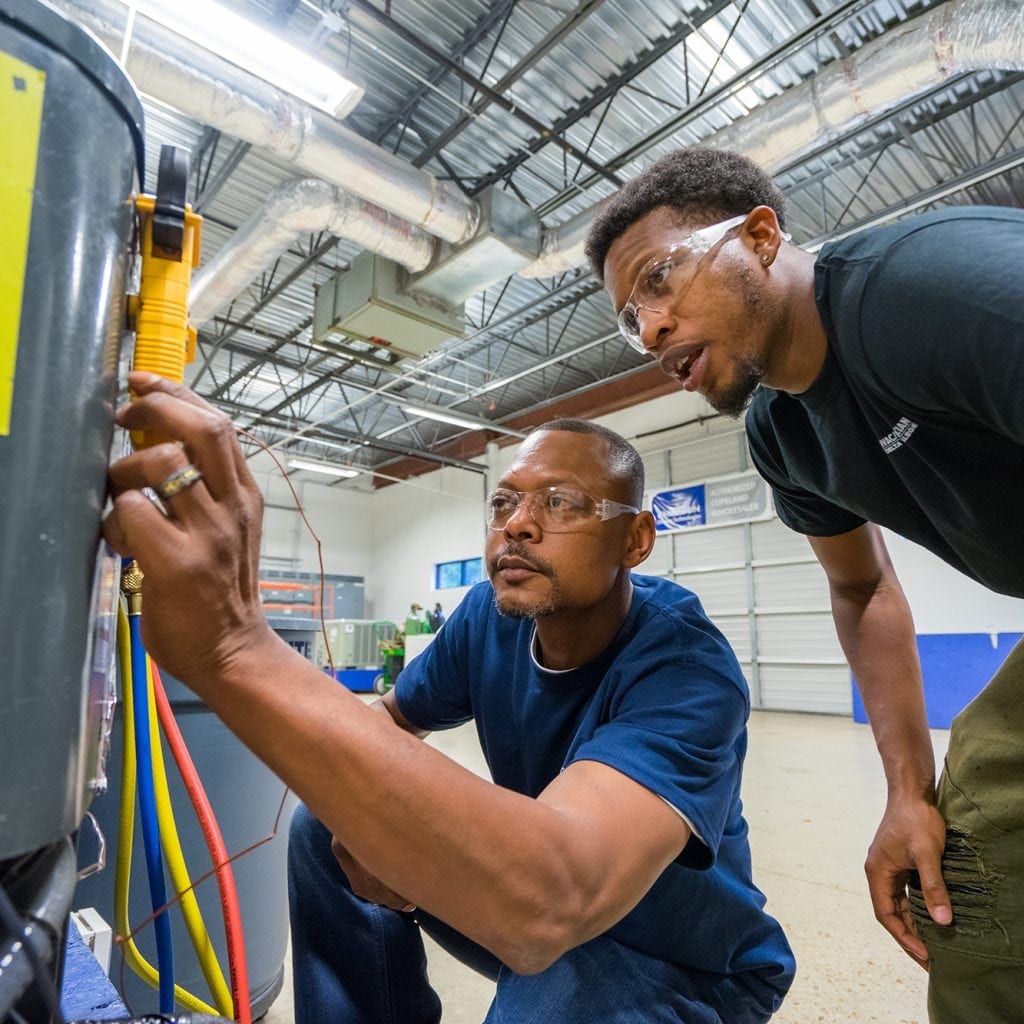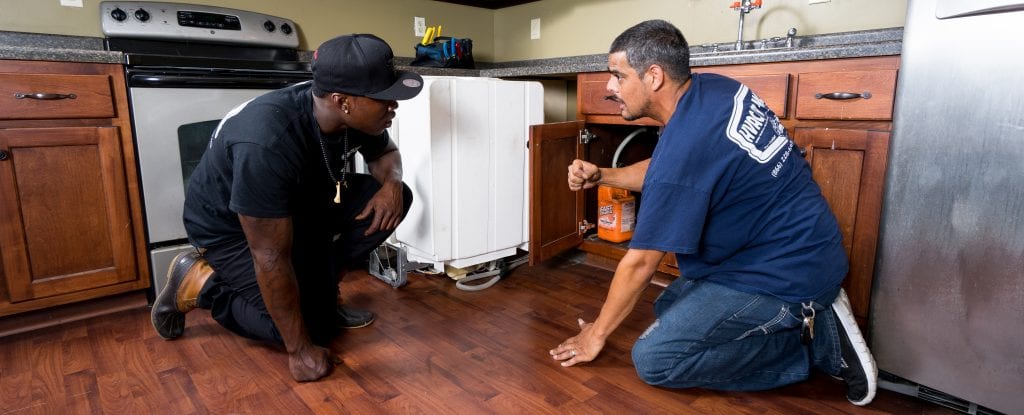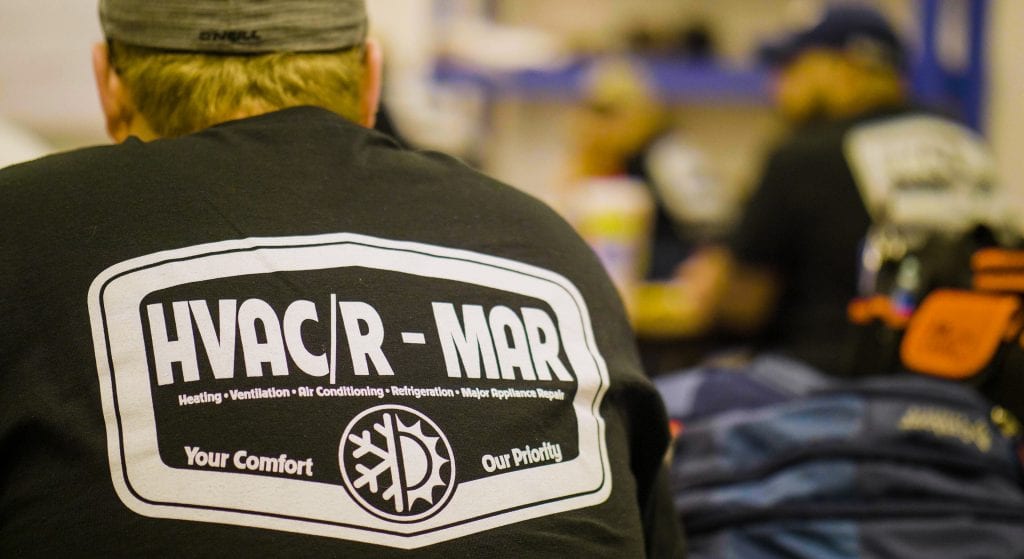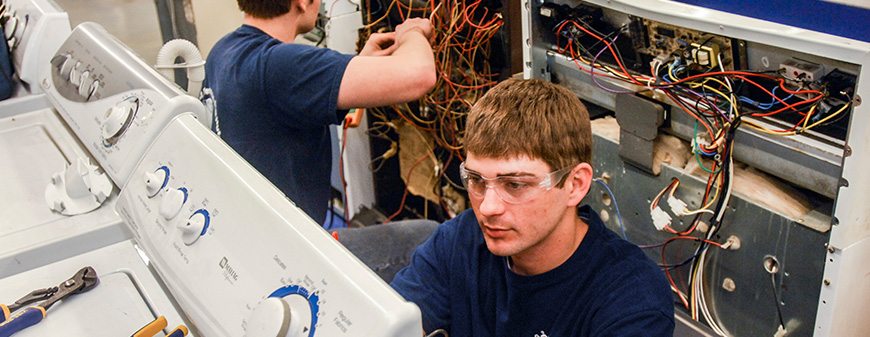
HVAC Technician Definition
What Does an HVAC Technician Do?
The majority of the job entails the installation, maintenance, repair, and replacement of HVACR units. Some individuals also specialize in major appliance repair; they are known as HVAC/R-MAR technicians. These professionals usually interact with home and business owners and may work in multiple locations on a daily basis. Lastly, they must abide by specific laws governing the refrigerants used in most HVACR equipment.[4] Learn more about what an HVAC technician does.
Career Overview
Compared to the national average job growth rate of 7 percent for all occupations and general installation, maintenance, and repair occupations, HVAC technicians are predicted to see jobs added at a rate of 15 percent through 2026, according to the BLS.
Job Growth Factors
- Continuous demand for indoor climate control and refrigeration among the owners of homes and businesses
- Repair and replacement of older HVACR units
- An increase in residential and commercial building construction
- Retrofitting, replacing, and upgrading HVACR units to improve energy efficiency[5]
Top Employers
- Air-conditioning, heating, and plumbing contractors
- HVAC technicians (self-employed)
- Private, local, and state educational services
- Retail trade work
- Wholesale work[6]
Job opportunities tend to be better for those who’ve completed formal HVAC training programs because employers often prefer to hire candidates with this credential. Many HVACR systems use refrigerants, and HVAC technicians are required by law to obtain U.S. Environmental Protection Agency (EPA) certification to handle them.
Interested in Learning More About HVAC?
Fill out the form below to receive info about our career training programs.
Salary
Graduates of MTI’s HVAC training programs in Illinois and Missouri typically make $24,626 a year.
HVAC Technician Skills
HVAC techs work on complex equipment and therefore must possess a combination of theoretical knowledge and technical skills. Many take HVAC classes to learn the concepts and practices necessary to perform the job.
Theoretical Knowledge
- Math
- Physics
- Basic electricity
- Blueprint reading
- Design
Technical Skills
- Mechanical skills
- Troubleshooting skills
- Tool identification and uses
- Computing
- Software: computer aided design (CAD), word processing, databases, industrial control, and facilities management
- Building and construction
- Equipment installation, maintenance, and repair[12][13]
HVAC Technician Qualities & Traits
Some individuals are naturally well-suited for a career in the heating, ventilation, air conditioning, and refrigeration industry because they have specific qualities and traits.
- Attention to detail
- Physical strength and stamina
- Strong interpersonal skills
- Good manners
- Time-management skills
- Near vision
- Manual dexterity
- Problem solving[14][15]
Career Opportunities
The HVAC industry holds career opportunities beyond the servicing of traditional heating, cooling, and ventilation equipment. In some cases, additional training, work experience, or other credentials are necessary.
- Green HVAC Jobs: energy efficient HVAC practices and green construction[16]
- HVAC Installer
- HVAC Operation Manager
- HVAC Distribution Manager[17]
Education Requirements
While individuals learn many of the skills necessary to work as an HVAC technician, they may also have natural qualities and traits that can help them in this profession.
How to Become an HVAC Technician
Licenses and Certifications
Similar Professions
- Wind Turbine Technicians
- Boilermakers
- Stationary Engineers and Boiler Operators
- General Maintenance and Repair Workers
- Sheet Metal Workers
- Plumbers, Pipefitters, and Steamfitters[21]
- [1] https://www.bls.gov/ooh/installation-maintenance-and-repair/heating-air-conditioning-and-refrigeration-mechanics-and-installers.htm#tab-6
[2] https://www.bls.gov/ooh/installation-maintenance-and-repair/heating-air-conditioning-and-refrigeration-mechanics-and-installers.htm
[3] https://www.bls.gov/ooh/installation-maintenance-and-repair/heating-air-conditioning-and-refrigeration-mechanics-and-installers.htm#tab-2
[4] https://www.bls.gov/ooh/installation-maintenance-and-repair/heating-air-conditioning-and-refrigeration-mechanics-and-installers.htm#tab-2
[5] https://www.bls.gov/ooh/installation-maintenance-and-repair/heating-air-conditioning-and-refrigeration-mechanics-and-installers.htm#tab-6
[6] https://www.bls.gov/ooh/installation-maintenance-and-repair/heating-air-conditioning-and-refrigeration-mechanics-and-installers.htm#tab-3
[7] https://www.epa.gov/section608/section-608-technician-certification-0
[8] https://www.bls.gov/oes/current/oes_il.htm
[9] https://www.bls.gov/oes/current/oes_mo.htm
[10] https://study.com/articles/Salary_and_Career_Info_for_Heating_and_Air_Conditioning_Technicians.html
[11] https://www.bls.gov/oes/current/oes499021.htm
[12] https://www.bls.gov/ooh/installation-maintenance-and-repair/heating-air-conditioning-and-refrigeration-mechanics-and-installers.htm#tab-4
[13] https://www.onetonline.org/link/summary/49-9021.01
[14] https://www.bls.gov/ooh/installation-maintenance-and-repair/heating-air-conditioning-and-refrigeration-mechanics-and-installers.htm#tab-4
[15] https://www.onetonline.org/link/summary/49-9021.01
[16] https://www.onetonline.org/help/green/49-9021.01
[17] https://explorethetrades.org/what-we-do/education/hvac/why-become-an-hvac-technician/
[18] https://www.bls.gov/ooh/installation-maintenance-and-repair/heating-air-conditioning-and-refrigeration-mechanics-and-installers.htm#tab-4
[19] https://www.angieslist.com/articles/which-hvac-certifications-do-technicians-need.htm
[20] https://www.fieldpulse.com/academy/hvac-license-requirements/
[21] https://www.bls.gov/ooh/installation-maintenance-and-repair/heating-air-conditioning-and-refrigeration-mechanics-and-installers.htm#tab-8
